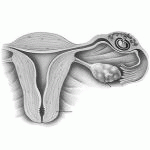Gynaecology
|
26 february 2015 06:16:25 |
| A qualitative study on barriers in the prevention of anaemia during pregnancy in public health centres: perceptions of Indonesian nurse-midwives (BMC Pregnancy and Childbirth) |
|
Tweet Background:
Anemia in pregnancy remains a major problem in Indonesia over the past decade. Early detection of anaemia in pregnancy is one of the components which is unsuccessfully implemented by nurse-midwives. This study aims to explore nurse-midwives’ experiences in managing pregnant women with anaemia in Public Health Centres.
Methods:
We conducted a qualitative study with semi-structured face to face interviews from November 2011 to February 2012 with 23 nurse-midwives in five districts in Yogyakarta Special Province. Data analysis was thematic, using the constant comparison method, making comparison between participants and supported by ATLAS.ti software.
Results:
Twelve nurse-midwives included in the interviews had less than or equal to 10 years’ working experience (junior nurse-midwives) and 11 nurse-midwives had more than 10 years’ working experience (senior nurse-midwives) in Public Health Centres. The senior nurse-midwives mostly worked as coordinators in Public Health Centres. Three main themes emerged: 1) the lack of competence and clinical skill; 2) cultural beliefs and low participation of family in antenatal care programme; 3) insufficient facilities and skilled support staff in Public Health Centres. The nurse-midwives realized that they need to improve their communication and clinical skills to manage pregnant women with anaemia. The husband and family involvement in antenatal care was constrained by the strength of cultural beliefs and lack of health information. Moreover, unfavourable work environment of the Public Health Centres made it difficult to apply antenatal care the pregnant womens’ need.
Conclusions:
The availability of facilities and skilled staffs in Public Health Centre as well as pregnant women’s husbands or family members contribute to the success of managing anaemia in pregnancy. Nurse-midwives and pregnant women need to be empowered to achieve the optimum result of anaemia management. We recommend a more comprehensive approach in managing pregnant women with anaemia, which synergizes the available resources and empowers nurse-midwives and pregnant women. |
| 129 viewsCategory: Gynaecology |
 A community-based assessment of correlates of facility delivery among HIV-infected women in western Kenya (BMC Pregnancy and Childbirth) A community-based assessment of correlates of facility delivery among HIV-infected women in western Kenya (BMC Pregnancy and Childbirth)Person-centred care in interventions to limit weight gain in pregnant women with obesity - a systematic review (BMC Pregnancy and Childbirth) 
|
| blog comments powered by Disqus |
MyJournals.org
The latest issues of all your favorite science journals on one page
The latest issues of all your favorite science journals on one page



